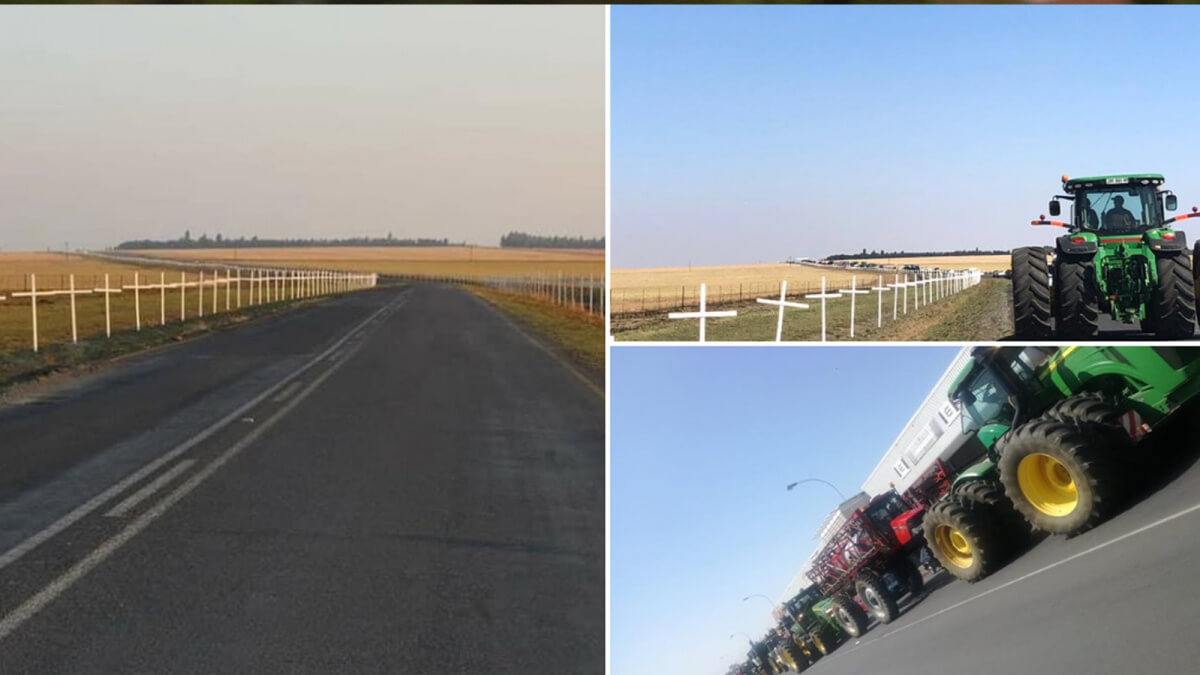A contentious encounter occurred in the Oval Office on Wednesday when President Donald Trump presented South African President Cyril Ramaphosa with disturbing videos featuring advocates from Ramaphosa’s party calling for aggression against white farmers. As White House correspondents looked on, the footage displayed haunting chants and fervent speeches pushing for the seizure of white-owned farmland in South Africa.
During this charged exchange, President Ramaphosa attempted to challenge the narrative of a white genocide occurring in South Africa, a claim that has been circulating in some circles. "No white genocide is happening here," Ramaphosa stated, appealing to President Trump for a deeper comprehension of South Africa's intricate socio-political landscape.
Despite Ramaphosa's assurances, President Trump held firm, citing extensive coverage of the issue. "We have thousands of stories talking about it, and we have documentaries, we have news stories," Trump contended, drawing upon the commentary of figures like Elon Musk, who have expressed concern over the escalating violence targeting white South African farmers.
In a particularly poignant moment, Trump described footage of a road bordered by white crosses, memorials for deceased white farmers, saying, “Each one of those white things you see is a cross, and there’s approximately a thousand of them. They’re all white farmers. The family of white farmers.”
This confrontation comes on the heels of Trump’s administration granting refugee status to 49 white South African Afrikaners citing escalating violence and land expropriations. The group's arrival in Virginia was expedited, igniting a furor not only from the South African government but also from religious and humanitarian groups.
The decision has been met with criticism, including from the Episcopal Church, which terminated its long-standing refugee partnership in response. Presiding Bishop Sean Rowe denounced the "preferential treatment" afforded to this particular racial group, asserting that it contravened the Church's dedication to racial equality and its alliance with the Anglican Church in Southern Africa.
Trump has frequently lambasted the American media for not adequately covering the tribulations faced by white South African farmers. This frustration was evident when he rebuked an NBC News reporter for inquiring about an unrelated topic, labeling the journalist "a disgrace."
The broader context of this incident points to a contentious debate over the plight of white farmers in South Africa. Afrikaners, mainly of Dutch descent, have reported an uptick in violent assaults and government-sanctioned land requisitions. While the South African government rejects any notion of a racially motivated campaign or "white genocide," the situation has attracted the gaze of international human rights watchdogs and conservative American policymakers.
President Trump's decision to shine a spotlight on this issue sharply contrasts with critiques from Democrats and others who allege that his refugee policy shows bias against black and brown asylum seekers. Nevertheless, Trump utilizes his platform to underscore what he and his backers view as a humanitarian crisis overlooked by mainstream media and international bodies.
ADMIN NOTES: President Trump inaccurately referred to each cross being a burial site of a killed farmer. He also posted an image of body bags being removed. These pictures were from an unrelated event. A search on this particular story unfortunately brings up a number of politically motivated anti-Trump stories. We strive to deliver the facts at BalancedRight.com.





